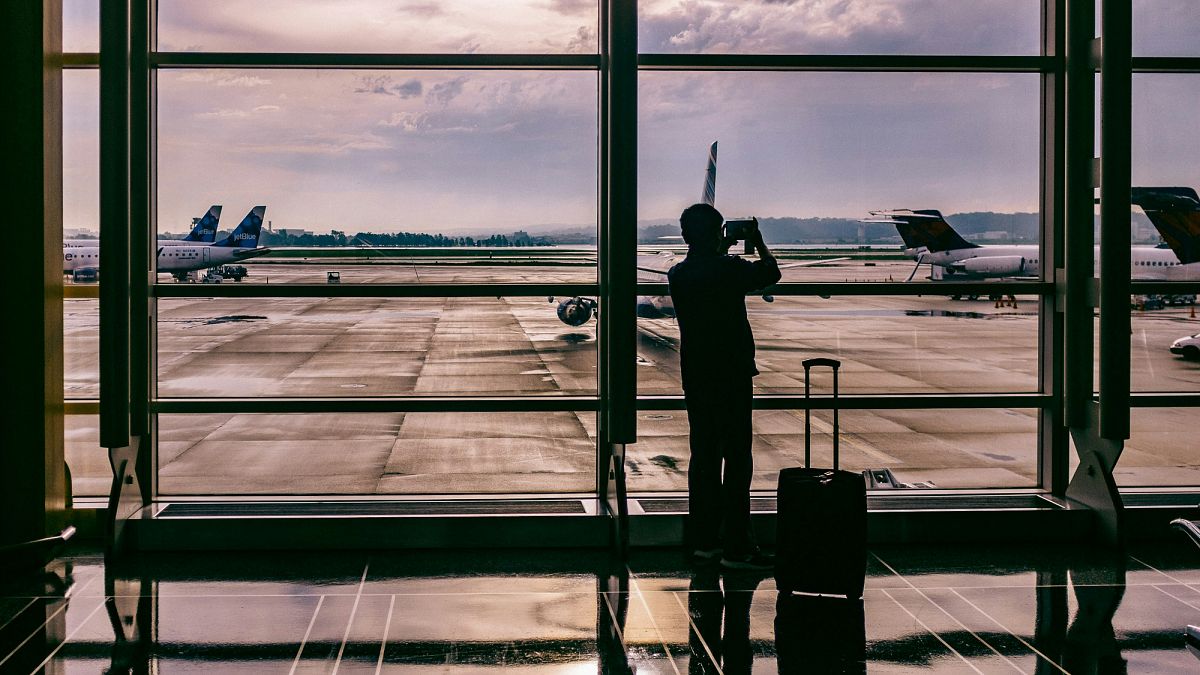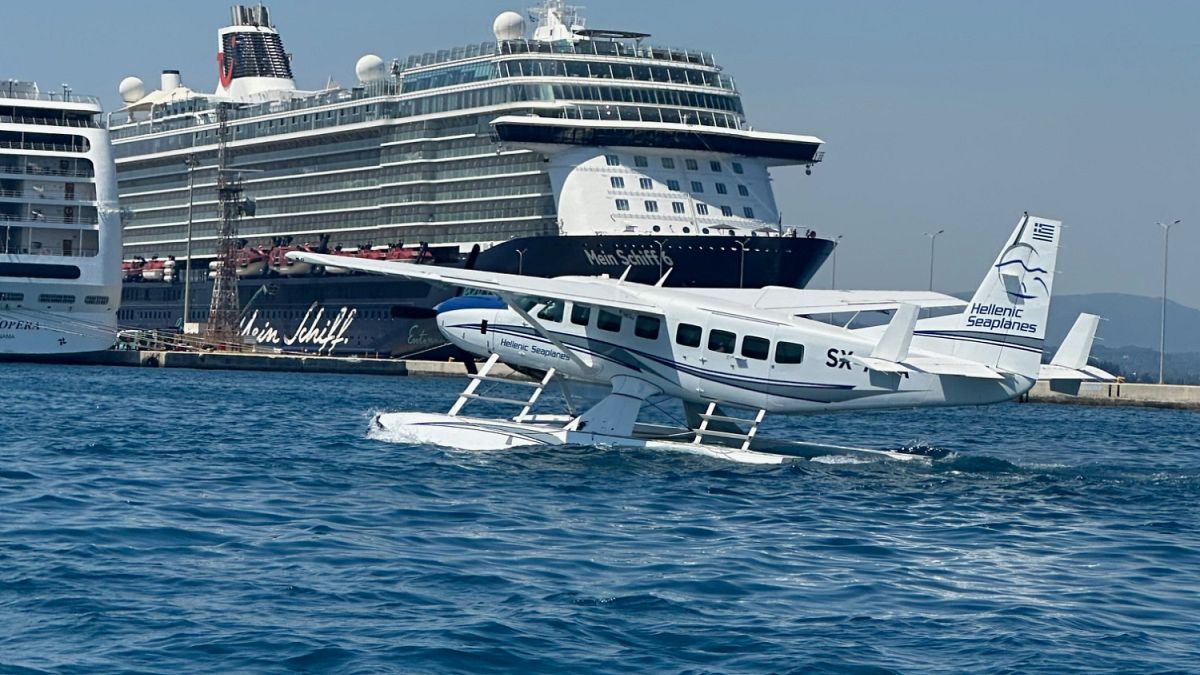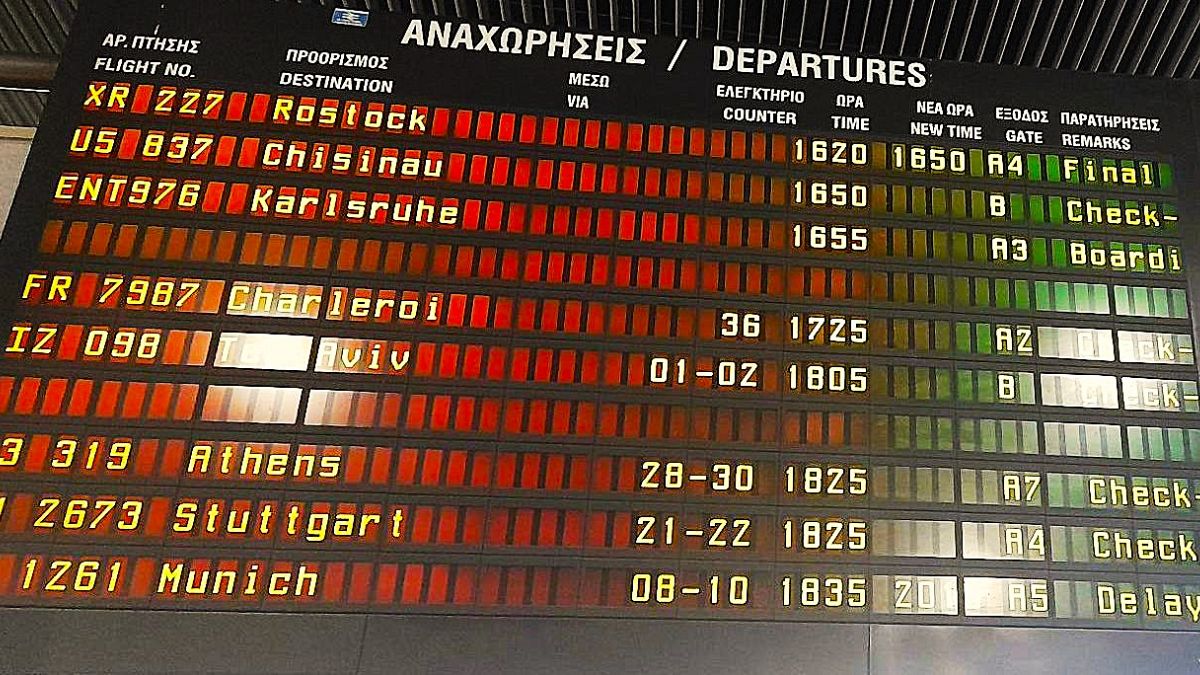European Union lawmakers have voted to adopt a proposal that will allow air passengers to bring a personal item into the cabin and a piece of hand luggage of up to seven kilogrammes free of charge.
“Today’s vote marks an important step toward fairer and more transparent travel,” Matteo Ricci, vice-president of the EU Committee on Transport and Tourism and the bill’s lead sponsor, said in a press release.
He added that clearly defined rules for free hand luggage were “a fundamental right to avoid unjustified extra costs”, ensuring a “fairer and more efficient system”.
The measure comes in addition to wider reforms proposed by the European Commission in 2023 on passenger rights. It would require airlines to disclose total flight costs earlier in the booking process and affect compensation rights.
Here’s how the ruling will affect air passengers and when the changes could come into effect.
Air passengers should have right to free carry on luggage
Under the new rules, travellers taking a flight in the EU will have the right to carry a personal bag, such as a handbag or rucksack, and a small hand luggage item on board at no extra cost.
Personal bags can have maximum dimensions of 40x30x15 centimetres, and hand luggage items will be allowed maximum dimensions of 100cm and a weight of 7kg.
Airlines will not be allowed to charge passengers any additional fees for carrying these items.
It follows a ruling from more than a decade ago by the European Court of Justice that decreed that the carriage of hand luggage cannot be subject to a surcharge, provided that it meets reasonable requirements in terms of weight and dimensions and complies with the applicable safety requirements.
Recently, a group of consumer organisations asked national consumer watchdogs and the European Commission to conduct an inquiry into what they allege are unfair hand luggage charges imposed by budget airlines.
The low-cost carriers levy extra charges for luggage they claim is “oversized” but which should come under the size and weight measurements considered “reasonable” by the EU, the consumer groups say.
Will new hand luggage rules make air fares more expensive?
While the vote seems a win for air passengers, a spokesperson for industry association Airlines for Europe (A4E) warned that it could mean paying higher air fares overall, especially those who want to travel light.
“Today’s vote on enforcing passenger rights and multimodal passenger rights has seen the Transport Committee (TRAN) finally take action against online freeriding by spelling out the duties and liabilities of every business that sells travel,” the spokesperson said.
“Unfortunately, this is overshadowed by the Committee using this vote to add air travel specific amendments by the backdoor that remove choice from passengers and their ability to decide what services they want to pay for and, most importantly, what service they don’t.”
More support for vulnerable travellers
The vote for hand luggage regulations has been added to the European Commission’s 2023 proposal to bolster passenger rights. As part of the proposal, MEPs want to ensure children under 12 years old are seated next to their accompanying passenger free of charge.
They also want more protections for passengers with reduced mobility by making sure an accompanying person can travel with them free of charge, and adding a compensation right in case of loss or damage to mobility equipment or injury to an assistance animal.
Lawmakers push for clarity around compensation
The 2023 draft rules also clarify the role of intermediaries (ticket vendors or retailers) in reimbursing air passengers for cancellations, long delays or denied boarding.
MEPs want these companies to inform passengers at the time of booking about the full cost of an air ticket, intermediation or service fees, and the reimbursement process, which should not take longer than 14 days.
Should an intermediary fail to respect this deadline, it would be up to the air carrier to process the reimbursement within seven days.
Lawmakers also supported the proposal to introduce a common EU-wide form for compensation and reimbursement requests.
They want to add a provision tasking air carriers with sending passengers the pre-filled form, or activate alternative automatic communication channels, within 48 hours following a disruption.
To get the green light, the various proposals will now go to a vote by the full parliament.
This might see modifications made to the rulings as they will need to be negotiated and approved by member states before they can come into force.












